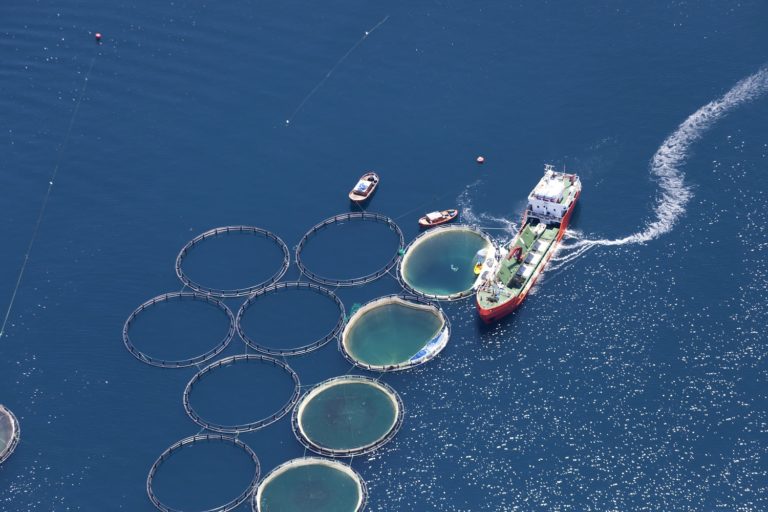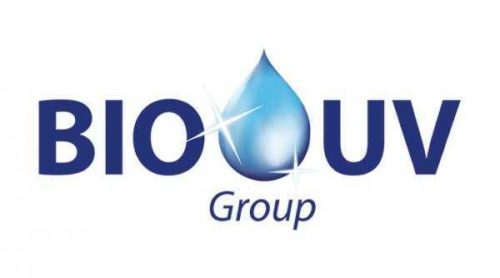In the high-volume transport conditions experienced in salmon farms and other commercial marine environments that require the moving of live fish, preventing infection and contamination is crucial, as is ensuring fish welfare. Wellboats, which sort, treat and transfer farmed salmon to open seas and back, are relying on BIO-UV and Redox hygiene and biosecurity solutions to keep farmed fish fresh.
The transportation of farmed fish, predominantly salmon, for commercial purposes must comply with mandatory welfare requirements to minimise stress and danger to the livestock being transported. When it comes to fish, for example, the EU Platform on Animal Welfare Voluntary Initiative on Fish Welfare (2020) stipulates that water quality parameters should be kept within acceptable limits throughout the journey, with supplemental oxygen supplied and changes in water temperature avoided. It also stresses that key water quality parameters should have limits established that are specific to the species and life stage of the fish.
Ensuring compliance with these and other requirements of live fish transport is central to the business model of water treatment specialist BIO-UV, which has a long history of activity in aquaculture and, specifically, the wellboat sector.
The company’s UV-and ozone-based water treatment technology tackles the proliferation of algae and addresses risks of waterborne diseases affecting fish stocks by reproducing natural ecosystems, using ultraviolet light and ozone to disinfect the water during their journeys from land based or hatcheries to offshore farms.
With over a decade of expertise in maritime UV treatment for both newbuild and retrofitted vessels, BIO-UV partners with Redox, one of Norway’s leading aquaculture technology suppliers, to provide effective water treatment solutions to wellboats operating globally. Redox provides solutions for regulating water quality to the fisheries and aquaculture industry, with a particular focus on encouraging good growth and water quality while increasing biosecurity at customers’ facilities.
“Redox is one of the world’s leading companies in terms of equipping wellboats, from newbuild to retrofit,” says Simon Marshall, Deputy General Manager of BIO-UV Group. “They have the equipment and the ability to intervene and send technicians worldwide. That’s why we chose them as our partner, and we are growing the market together.”
In addition to supplying its water treatment technology to customers worldwide, BIO-UV Group also leverages its expertise by designing bespoke advanced oxidation processes for clients who require this service.
“We have an R&D department that accompanies each project from design to installation,” says Patrick Jean Pichavant, BIO-UV Group’s Export Sales Director. “We offer flexibility regarding manufacturing of the device chosen and are able to respond from pre-sales to after-sales services.”
Many of the key aspects of the technologies used in keeping wellboat water safe also apply to the ballast water treatment sector, in which BIO-UV has had a strong presence since 2011 with its brand, BIO SEA.
In September 2019, BIO-UV Group further strengthened its market position by acquiring a 100% stake in Scotland-based Triogen Holdings, a former subsidiary of Suez, leveraging the benefits of Triogen’s investments in ozone and advanced oxidation process technologies.
BIO-UV Group redesigned the Triogen Integra range to adapt to the specific challenges of wellboat marine environments. With certified marine components, for use in rough marine environments, the Integra range delivers a powerful UV dose in an energy-efficient manner to eliminate pathogens.
By combining its UV and ozone expertise, BIO-UV Group offers its fish farming customers chemical-free methods for eliminating organic pollutants and contaminants in the fish tanks while increasing the concentration of dissolved oxygen in the water.
“We use UV to ensure optimal quality of the intake and output water from the vessel. Ozone have been the go-to technology for supreme disinfection of piping and fish holds for a long time. Both these applications help to ensure optimal biosecurity,” says Jonas Bergman, CEO of REDOX
In 2022, Redox installed BIO-UV’s solution on the world’s largest wellboat, the 7,500m3 Norwegian live fish carrier, Gåsø Høvding, operated by vessel service supplier Frøy. With the high-capacity carrier capable of loading more than 1,000 tonnes of fish per hour, BIO-UV’s expertise in protecting against pathogens and contamination is critical to keeping the vessel operating safely and compliant with local regulations.
“The UV systems that we use have been validated by the Norwegian veterinary Institute,” says Pichavant. Other recent achievements include an aquaculture project in Chile, Scotland and Norway for the salmon industry and shrimp farm projects in Southeast Asia.

BIO-UV and Redox hygiene and biosecurity solutions are keeping farmed fish fresh
About BIO-UV Group
For more than 20 years, BIO-UV Group has been designing, manufacturing and servicing ultraviolet light (UV-C), ozone, AOP and salt electrolysis water treatment systems for a multitude of industrial, residential and municipal applications. In 2011, it added the treatment of ships’ ballast water to its range. The company’s product range is designed and produced at its own purpose-built facilities across France and the UK, allowing the company to quickly respond to its customer’s specific requirements.
A public-listed company since July 2018, BIO-UV Group has a consolidated turnover of €51.3 million in 2022 and a current workforce of 160+ employees. More than 55% of the group’s sales are made in export markets with more than 30% in the ballast water treatment market.

